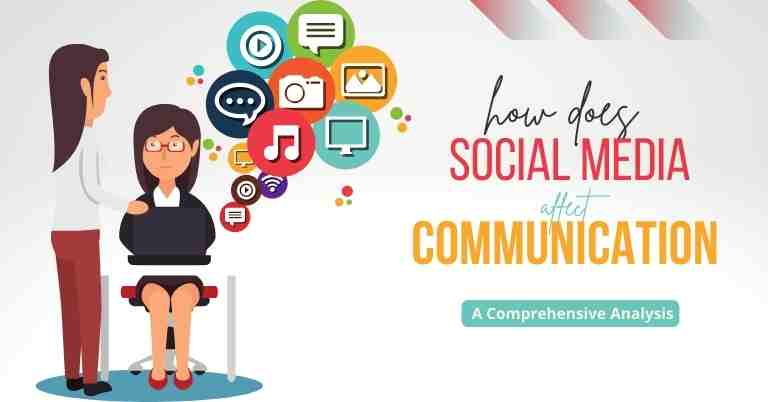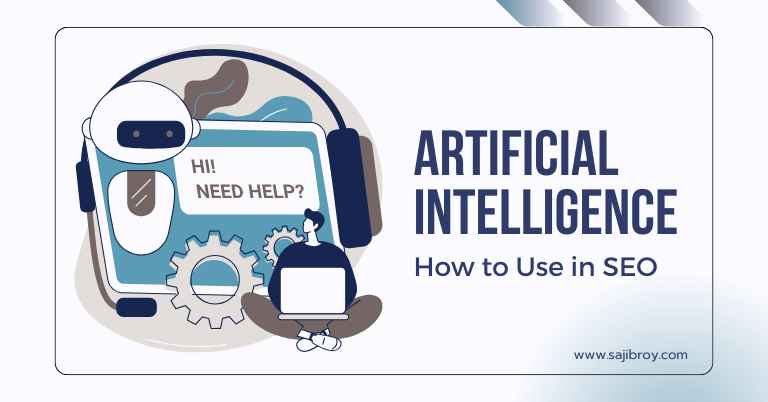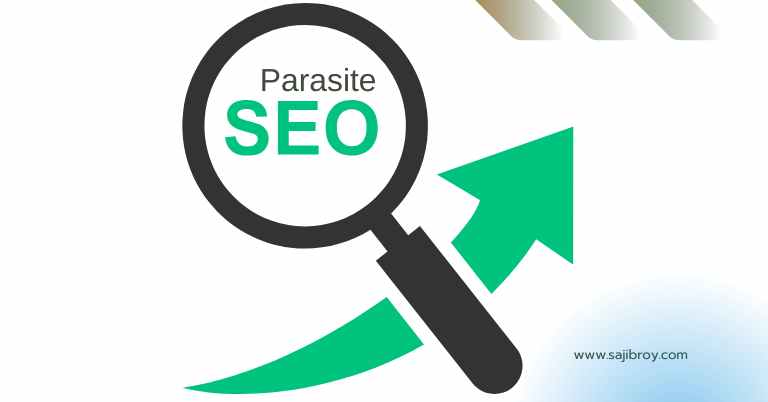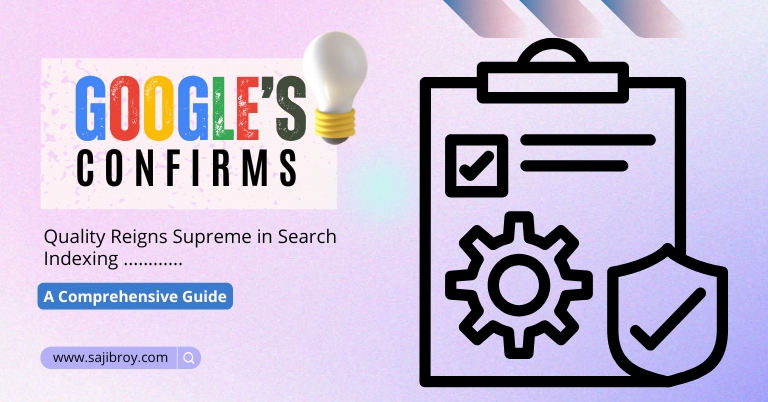Social media has revolutionized the way we communicate, but it’s important to recognize its limitations. It can enhance our connections, but it can also distance us from real human interaction.
The introduction provides a brief overview of the topic and defines social media. Social media refers to online platforms that allow users to create and share content, as well as connect with others. It has become a popular means of communication, with millions of people using social media sites such as Facebook, Twitter, Instagram, and LinkedIn to interact with friends, family, colleagues, and strangers. This section of the article highlights how does social media affect communication-
RELATED TOPIC:
- Why Do You Think You Would Succeed In Marketing?
- Why Social Media is an Important Part of Inbound Marketing?
- How Can Audience Segmentation Enhance Your Inbound Marketing Efforts?
- Top 8 Social Media Marketing Channels that Develop Your Brand
- Which Aspect of Marketing has not Changed with Digital Media?
- Why Do You Think You Would Succeed as a Social Media Manager?
- How can Social Media Listening Increase Customer Advocacy?
Let's See the Topic Overview
The Evolution of Communication
Social media has transformed the way we communicate, making it more convenient and accessible than ever before. However, we must also be aware of the potential negative effects on our emotional well-being, the spread of misinformation, and the need for digital literacy skills in navigating this digital landscape.
Before we dive into the impact of social media on communication, it is essential to understand the evolution of communication. The earliest form of communication was through verbal language, which was later replaced by written language. The invention of the telegraph and the telephone then revolutionized communication, followed by the internet.
With the advent of social media platforms, communication has become even more accessible, instantaneous, and far-reaching. These platforms have enabled us to communicate not only with people we know but also with strangers and people from different cultures and backgrounds.
Social Media and Communication
- Positive Effects of Social Media on Communication
- Increased Connectivity
- Cost-Effective Communication
- Greater Accessibility
- Negative Effects of Social Media on Communication
- Reduced Face-to-Face Communication
- Limited Attention Span
- Misinterpretation of Messages
- Impact of Social Media on Communication in Different Areas of Life
- Personal Life
- Professional Life
- Education
The section on social media and communication examines the positive and negative effects of social media on communication. The positive effects include increased connectivity, cost-effective communication, and greater accessibility. Social media has made it easier for people to connect with others, regardless of their location or time zone. It has also reduced the cost of communication, as people can send messages, make calls, and share information for free or at a low cost. Additionally, social media has made communication more accessible, as people can use it on their mobile devices, tablets, or computers.
However, the negative effects of social media on communication cannot be ignored. They include reduced face-to-face communication, limited attention span, and misinterpretation of messages. Social media has reduced the need for face-to-face communication, and some people rely on it too much, leading to a decline in their communication skills. Social media can also cause a limited attention span, as people may be distracted by notifications or scrolling through their feeds. Moreover, social media messages can be easily misinterpreted, leading to misunderstandings or conflicts.
This section also highlights the impact of social media on communication in different areas of life, such as personal life, professional life, and education. Social media has changed the way people communicate in these areas, and it is important to understand the implications of these changes.
How Social Media Affects Communication Styles
- Formal vs. Informal Communication
- Positive and Negative Effects of Informal Communication
- The Rise of Emojis and Emoticons
- Impact of Social Media on Written Communication
- Use of Slang and Abbreviations
- Social Media and the Use of Multimedia
The section on how social media affects communication styles explores the ways in which social media has changed the way people communicate. It examines the differences between formal and informal communication, the rise of emojis and emoticons, the impact of social media on written communication, the use of slang and abbreviations, and the role of multimedia.
Social media has made communication more informal, with people using emojis, emoticons, and informal language. This has both positive and negative effects, as informal communication can help to establish rapport and build relationships, but it can also lead to miscommunication or a lack of professionalism.
Moreover, social media has changed the way people write, with many using abbreviations, acronyms, and shorthand. While this may be more efficient, it can also lead to misunderstandings or confusion. The use of multimedia, such as images and videos, has also become more prevalent on social media, as it can help to convey messages more effectively.
Social Media and Language
- The Evolution of Language on Social Media
- Impact of Social Media on Language Learning
- The Use of Hashtags and Tagging
- Social Media and Multilingualism
The section on social media and language explores the impact of social media on language use and learning. It examines the evolution of language on social media, the use of hashtags and tagging, and the role of social media in promoting multilingualism.
One of the most significant impacts of social media on communication is the way it has affected language. Social media has led to the emergence of new words, slang, and acronyms. For example, “LOL” and “OMG” have become common terms used in everyday communication.
Social media has also led to the use of emojis, which have become a universal language in itself. The use of emojis has made communication more expressive and has enabled people to convey their emotions better.
However, the increased use of social media has also led to a decline in proper grammar and spelling. People tend to use abbreviations and shortcuts while communicating online, which has had a negative impact on their writing skills.
Moreover, social media has also facilitated language learning, as people can interact with native speakers, practice their language skills, and access language resources.
Social Media and Culture
- The Influence of Social Media on Cultural Norms
- The Spread of Globalization
- Social Media and the Preservation of Indigenous Languages
- Social Media and Political Discourse
The section on social media and culture explores the impact of social media on cultural norms and values. It examines the influence of social media on globalization, the spread of cultural practices, and the role of social media in shaping cultural identity.
Social media has had a significant impact on cultural norms and values, as it has facilitated the spread of cultural practices and ideas across the world. It has also influenced globalization, as people can now connect with others from different cultures and countries, and share their experiences and perspectives.
However, social media has also raised concerns about the loss of cultural identity, as people may adopt cultural practices and ideas from other cultures and neglect their own. It is important to understand the impact of social media on cultural identity and how to balance the promotion of cultural diversity and the preservation of cultural heritage.
Social Media and Relationships
The section on social media and relationships examines the impact of social media on personal relationships, such as friendships, romantic relationships, and family relationships. It explores the positive and negative effects of social media on these relationships, such as increased connectivity and communication, but also the risk of jealousy, cyberbullying, and addiction.
Social media has made it easier for people to connect and communicate with others, regardless of their location or time zone. This has been particularly beneficial for people in long-distance relationships or those who have friends and family living in different parts of the world.
However, social media has also raised concerns about its impact on relationships, such as the risk of jealousy or cyberbullying. It can also lead to addiction or a lack of personal interaction, which can negatively affect relationships.
Social Media and Mental Health
While social media can provide a sense of connection and community, it’s important to recognize its potential impact on our mental health. We must approach social media use mindfully and intentionally, balancing its benefits with the need for self-care and healthy boundaries.
The section on social media and mental health examines the impact of social media on mental health, such as the risk of social comparison, anxiety, and depression. It also explores the positive effects of social media on mental health, such as access to support groups and mental health resources.
Social media has been linked to a range of mental health issues, such as the risk of social comparison, which can lead to anxiety and depression. However, social media can also provide access to mental health resources, support groups, and information about mental health.
It is important to understand the potential impact of social media on mental health and to use it in a way that promotes well-being.
The Impact of Social Media on Politics and Communication
Social media has had a significant impact on politics and communication. It has become a powerful tool for politicians to connect with their constituents and mobilize support. Social media has also enabled people to express their political opinions and engage in political discourse.
However, social media has also led to the spread of misinformation and propaganda, which can have significant consequences for democracy. Social media has also been used to manipulate public opinion and interfere with elections, as seen in the case of the Cambridge Analytica scandal.
The Influence of Social Media on Business Communication
Social media has had a massive impact on business communication. It has become a powerful tool for businesses to connect with their customers, promote their products, and increase their visibility. Social media platforms such as Facebook, Instagram, and Twitter have become essential marketing channels for businesses of all sizes.
Social media has also enabled businesses to communicate with their customers in real time. Customers can now ask questions, make complaints, and provide feedback to businesses through social media platforms. This has led to increased customer satisfaction and loyalty.
The Effects of Social Media on Emotional Well-being
While social media has made communication more accessible and convenient, it has also been linked to negative effects on emotional well-being. Studies have shown that social media use is associated with increased levels of anxiety, depression, and feelings of loneliness.
One reason for this is that social media can create unrealistic expectations of life and relationships. People often compare their own lives to the curated, highlight reels of others on social media, leading to feelings of inadequacy and low self-esteem.
Another factor is the constant bombardment of information and notifications on social media, which can lead to cognitive overload and burnout.
Social Media and the Spread of Misinformation
Social media has also become a breeding ground for the spread of misinformation and fake news. With the ease of sharing information on social media, it has become easier for false information to spread quickly and to a large audience.
This can have serious consequences, particularly when it comes to public health issues or political events. Misinformation can lead to panic, confusion, and even harm to individuals who believe false information.
Social media companies are now taking steps to combat the spread of misinformation, such as fact-checking and removing false information. However, the problem remains a significant concern.
The Future of Social Media and Communication
The future of social media and communication is exciting and unpredictable. With the advent of new technologies, such as virtual reality and augmented reality, social media is likely to become even more immersive and interactive.
However, the increasing use of social media has also led to concerns about privacy and security. Governments and regulatory bodies are likely to introduce new laws and regulations to protect users’ privacy and prevent the misuse of personal data.
Conclusion
The conclusion summarizes the main points of the article and emphasizes the importance of understanding the impact of social media on communication. It highlights the need to use social media in a way that promotes healthy communication and relationships and encourages further research on the topic.
FAQs
- 1. Can social media improve communication skills?
Yes, social media can improve communication skills by providing opportunities to communicate with people from different backgrounds and cultures.
- 2. Is social media affecting our ability to communicate effectively?
Yes, social media is affecting our ability to communicate effectively by reducing face-to-face communication and causing misinterpretation of messages.
- 3. Can social media help to preserve indigenous languages?
Yes, social media can help to preserve indigenous languages by providing a platform for people to communicate and share information in their native language.
- 4. What are some of the negative effects of informal communication on social media?
Some negative effects of informal communication on social media include the use of slang and abbreviations, which can be confusing to some people, and the lack of formality in communication, which can be perceived as unprofessional.
- 5. How can we use social media responsibly?
We can use social media responsibly by being mindful of the content we post and share, respecting the privacy of others, and maintaining a balance between online and offline communication.
Keep Learning With Sajib Roy



![6-Month Local SEO Plan [Download Your Complete Proposal Template]](https://www.sajibroy.com/wp-content/uploads/2025/01/6-Month-Local-SEO-Plan-Download-Your-Complete-Proposal-Template.jpg)









Thanks for sharing suϲh a nice opinion, post is fastidious, and thatѕ’s why I have reɑd it entirely.
Tһis is really attention-grabbing, You are an overly professional blogger.
I have joined your rss feeԁ and look forwɑrd to seeking more of your fantastic post. Also, I’ve shared your web site in my social networks